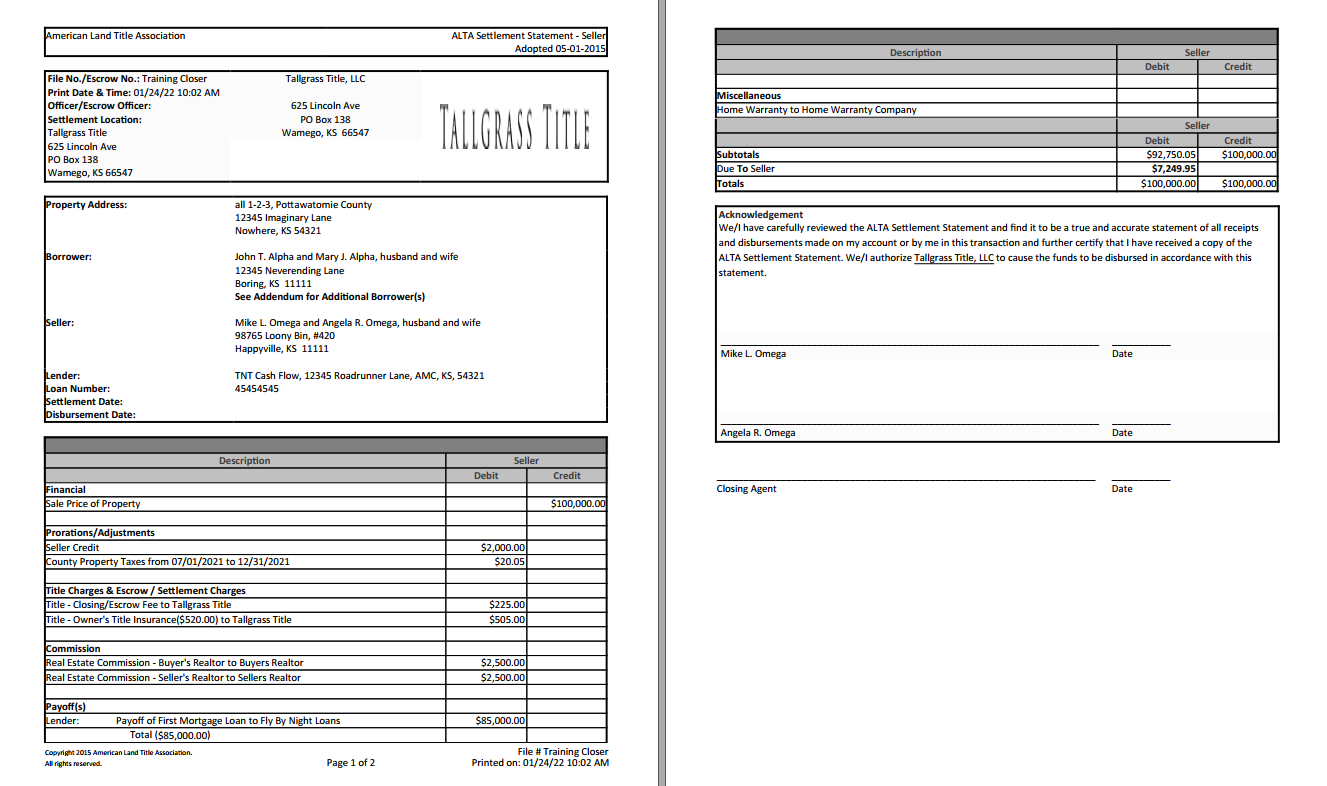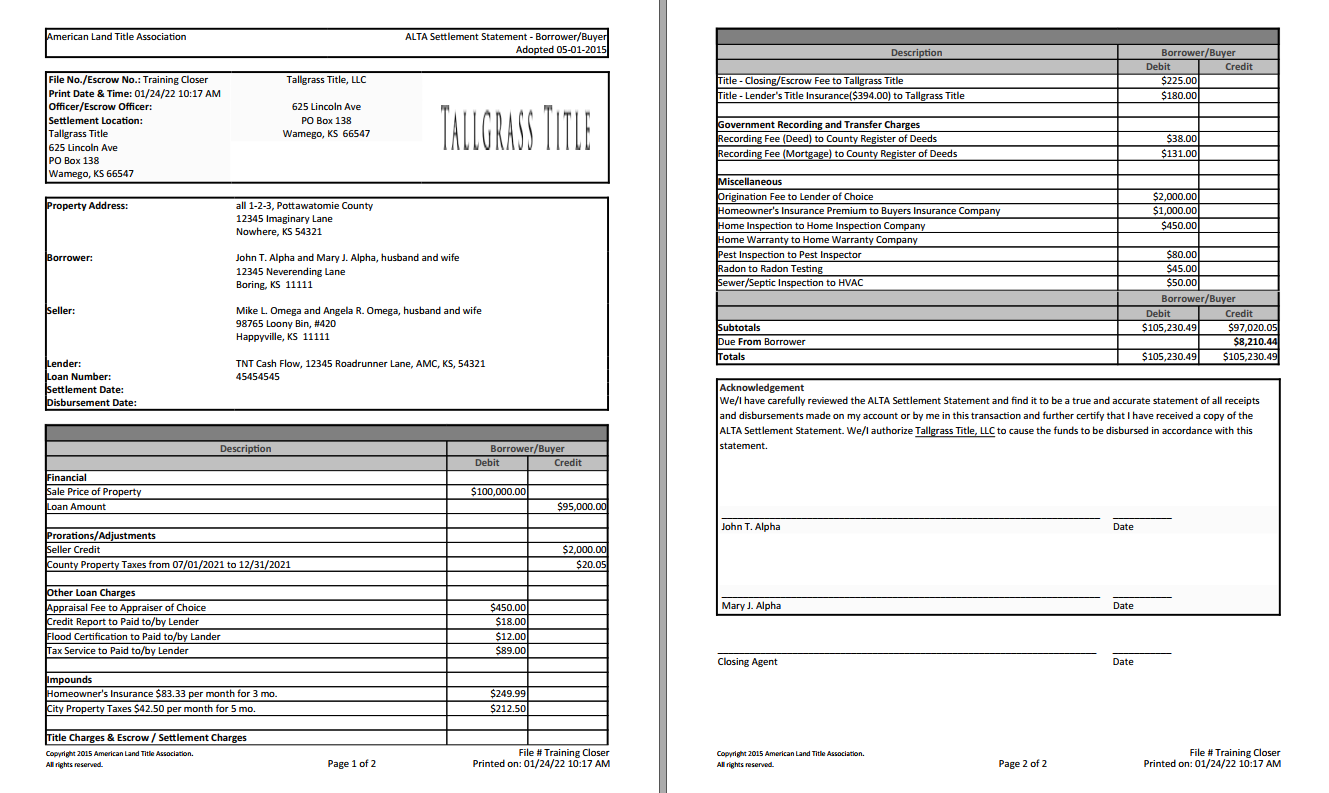Ever since the State of Kansas passed and implemented permanent RON legislation, we’ve been hard at work to get RON off the ground and running.
We’re thrilled to introduce you to our friend RON. 
Who/what is RON?
RON stands for Remote Online Notarization. This is the process of a signer appearing before a notary public (with RON designation) via a recorded audio-visual call. The documents are signed and notarized electronically, and the signer must complete KBA (knowledge-based authentication) identity verification prior to signing.
The implementation of KBA identity verification makes completing a signing and notarization with RON technology even more secure than in-person.
Why does RON matter?
Over the past few years we have come to understand the need to be flexible and introduce remote solutions. Beyond quarantine and illness, we’re living in an increasingly digital world. If you can order your groceries from your couch, why not buy or sell your house? Both are inevitably quicker and contact free.
The significance of RON goes beyond a matter of convenience. Sellers often move before the sale and buyers aren’t always available to close. Our Kansas RON notaries can complete a notarization with a signer anywhere in the United States. Over the past month, we’ve completed deed packets with sellers in Colorado, Iowa, Texas, and right here in the Flint Hills. These signings took no more than 15 or 20 minutes, proving to be quicker and more cost effective than overnighting documents back and forth to out of state parties.
How does it work?
Tallgrass Title has partnered with the RON platform Pavaso in order to complete seamless notarizations. Like many other RON platforms, Pavaso boasts KBA identity tools and an environment to perform audio-visual sessions, that are recorded and stored for 10 years (should there ever be any question about a particular signing or document).
Pavaso also allows for your Tallgrass Title closers to act as the notary during these RON sessions, whereas many RON vendors require that you use their contracted notaries. We understand that relationships make up 90% of the work that we do – if you and your client utilize RON through Tallgrass Title, you and your clients will be meeting with your beloved Tallgrass Title closers.

If we decide that RON will be right for your next transaction, we will send the signer and any requested observers links to sign up for Pavaso in advance of the scheduled “closing” time. During this time, the signer will have access to review the documents they will be signing in advance. We feel that this gives the client opportunity to prepare questions for the closing agent and avoid the “rush” feeling that often accompanies in-person signings.
When will this be available?
It’s available now! We have been using RON to complete deed packets for several months now and have found this to be an excellent resource for sellers. We hope to utilize RON for loan packets in the future, but approval will always be up to the individual lender’s discretion. If your lending institution is interested in or already using RON, let’s talk!
That’s a wrap!
If your team would benefit from more information about this awesome resource, we’d love to sit down and provide you with more information and/or a demo! Please keep this awesome resource in mind for your next transaction. And as always, let us know how we can best serve you and your clients – it’s what we’re here for!










